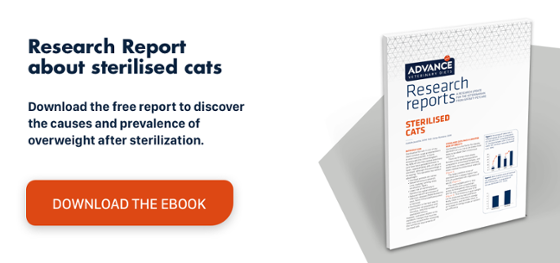Diarrhoea in kittens: is it normal or should I be worried?
Since their immune system is not fully developed, they are more sensitive to any kind of change, so in most cases there is no need to worry too much, although it will always depend on the nature of the underlying problem.

Aetiology of diarrhoea in kittens
Various illnesses can cause vomiting and/or diarrhoea in cats. Some of the most common causes are listed below:
- Secondary gastrointestinal disorders: hepatic, pancreatic, renal, adrenal or thyroid diseases; ketoacidosis; hypercalcaemia; hyperkalaemia, etc.
- Septicaemia, enterotoxaemia, etc.
- Foreign bodies
- Hair balls
- Infections (bacterial, viral, fungal, protozoan/parasitic diseases), e.g., Campylobacter spp., Clostridium spp., E. coli, panleukopaenia, FeLV, FIV, FIP, virulent calicivirius, helminths, Giardia spp., Cryptosporidium spp., Tritrichomonas foetus, Histoplasma, Toxoplasma, etc.
- Dietary transgression/sudden change of diet
- Food intolerance/hypersensitivity
- Inflammatory bowel disease (IBD)
- Drugs or toxins, e.g., xylazine, medetomidine, NSAIDs, etc.
- Neoplasms, e.g., leukaemia, lymphoma, intestinal or gastric tumours, etc.
- Neurological disorders
- Fading kitten syndrome: this occurs in the first 2 weeks of a kitten’s life. It may be due to a congenital defect, infection, maternal neglect, blood type incompatibility or extreme environmental conditions.
- Stress:when cats are exposed to stress, their digestive process accelerates. As a result of this accelerated digestion, the kitten cannot absorb nutrients or water, which is expelled in the faeces, so they become very soft.
Treatment of diarrhoea in kittens
Treatment, as always, will depend on the cause of the diarrhoea. Here are some of the remedies:
- Parasites: deworming products.
- Poisoning: soft diet, a prescription diet for intestinal problems in cats and temporarily supplementing their diet with probiotics to restore the flora.
- Food allergies: gradually replace the dry food (feed) and check whether the allergy disappears. Special foods are available that free from any ingredients likely to cause a reaction in sensitive or allergic cats.
In addition, symptomatic treatment should be introduced to prevent dehydration by administering sufficient fluids, stomach protectors and syrups for the flora as well as dietary treatment. Even if the diarrhoea disappears it is advisable to continue with a soft diet or the ADVANCE GASTROENTERIC prescription diet for at least 3 days. Abstain from giving the patient anything to eat for 12–24 hours.
